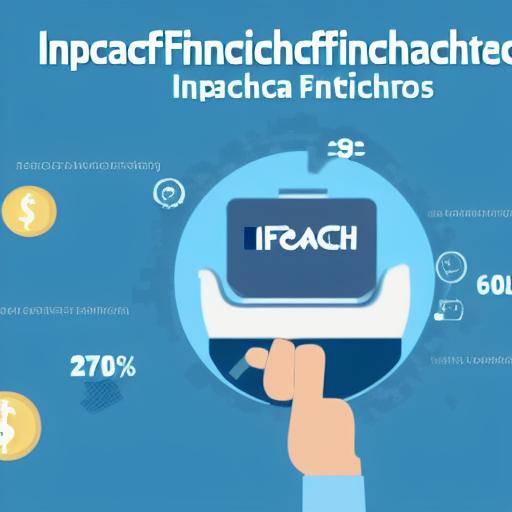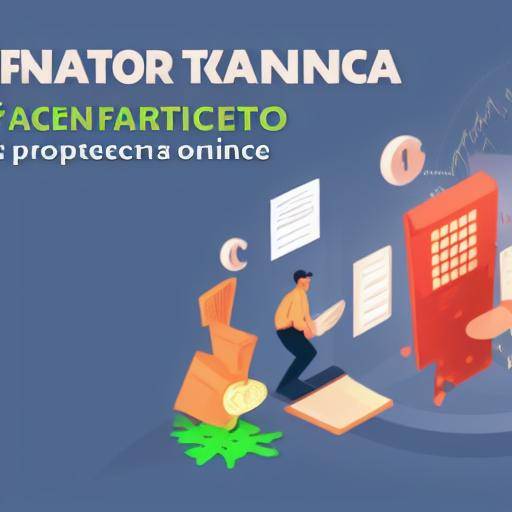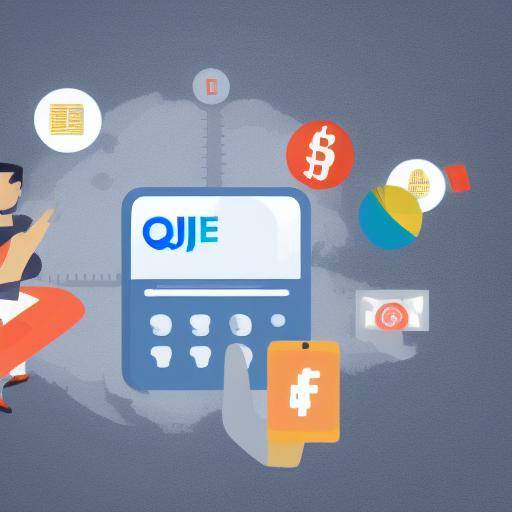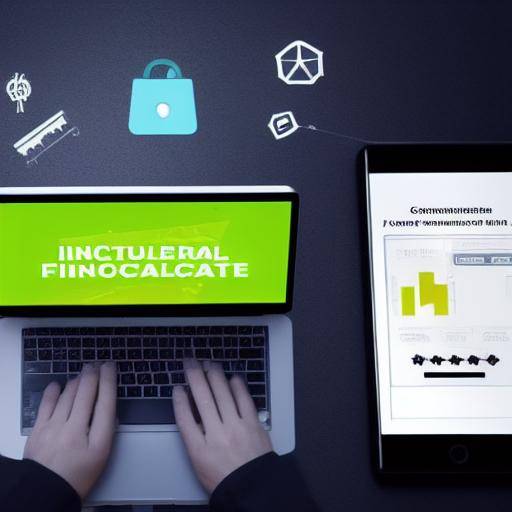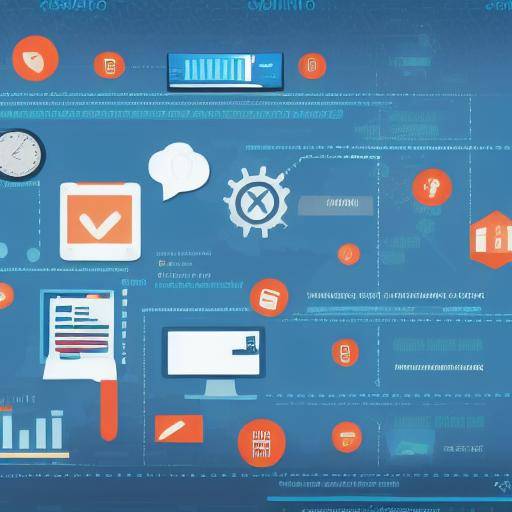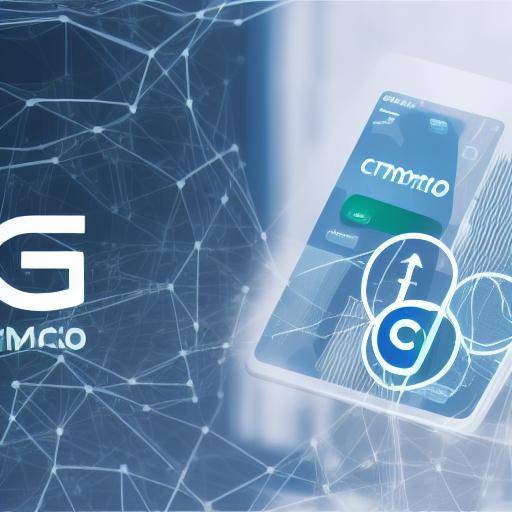
Currently, technology is revolutionizing the way we access financial services. The emergence of financial technology companies, known as Fintech, has led to the democratization of access to credit and loans. In this article, we will explore how the Fintechs are facilitating access to these services, providing greater ease and comfort to users. From its origin to future trends, we will analyze in depth the positive impact these technologies have had on the financial world.
Introduction
The Fintechs have broken into the global financial scenario, offering innovative solutions that have simplified and streamlined processes that were previously complex and difficult to access for most of the population. In particular, access to credit and loans has been significantly benefited by these technologies, allowing more people and companies to access financial services that were previously unreachable to them.
History and Background
Fintech is not a recent phenomenon. Its origin dates back to the first decades of the 21st century, when small startups began to challenge the status quo of the financial industry. As technology continued to evolve, these companies leveraged the opportunities offered by digitalization to create platforms and applications that democratize access to financial services.
The emergence of Fintech has been a turning point in financial history, as it has allowed individuals and companies to access credits and loans more quickly and easily, without having to resort to traditional and cumbersome application processes in conventional financial entities.
Analysis in Deep
The Fintechs have brought with them a number of significant benefits in terms of access to credit and loans. These benefits include the acceleration of application processes, the reduction of bureaucratic requirements, and greater transparency in terms and conditions of loans. The use of algorithms and big data has made it possible to assess applicants ' credit solvency more effectively, providing an opportunity for more people to access credits that fit their needs.
However, there are also challenges associated with these technologies, such as the protection of personal data and cybersecurity. It is essential to find a balance between technological innovation and the protection of the confidential information of users.
Comprehensive review
Fintech's practical applications in the credit sector are varied and have proven to be highly effective. From fast loan platforms to artificial intelligence-based credit assessment systems, Fintech has managed to optimize and diversify credit options available to consumers and businesses.
In addition, it is important to note that Fintech is not only changing the way in which credits are granted, but also promoting greater financial inclusion by facilitating access to banking services to sectors of the population that are traditionally excluded from the financial system.
Comparative analysis
Compared to traditional methods, Fintech offers greater ease and convenience in access to credit and loans. While before it was necessary to go physically to a bank branch and present a lot of documents, it is now possible to complete a request for credit from home comfort through a mobile app or online platform.
Technology has significantly simplified the process of borrowing and lending, reducing bureaucracy and waiting times, leading to greater democratization and access to these financial services.
Practical Tips and Accessible Tips
If you are considering applying for a loan or credit through a Fintech platform, then we offer you some practical tips that will help you optimise your experience:
- Investigate and compare different options: Before choosing a Fintech platform, take the time to research and compare the different options available. It considers aspects such as interest rates, payment periods and general terms.
- Check your credit history: Make sure you have a good credit history, as many Fintech platforms use algorithms to evaluate applicants' credit solvency.
- Read the terms and conditions: Before accepting a credit or loan, become familiar with the terms and conditions of the platform. Make sure you understand clearly the associated costs and payment times.
- Keep your data secure: Make sure you use secure and trusted platforms when entering and storing your personal and financial data.
- Use technology in your favor: Take advantage of the available technology tools, such as mobile applications and automatic notifications, to efficiently manage and make your payments.
Industrial Perspectives and Expert Reviews
Experts in the field of finance and technology agree that Fintech has played a crucial role in democratizing access to credit and loans. Specifically, they highlight the capacity of these platforms to reach segments of the population that traditionally did not have access to financial services, thus promoting greater inclusion and equity.
At the same time, it is important to consider the challenges that this technological advancement represents in terms of consumer regulation and protection. Experts note the need to develop robust regulatory frameworks that promote innovation, while protecting the rights and privacy of users.
Case Studies and Real Applications
Real Fintech case studies and applications in the field of credit and loans reveal various successful user experiences that have found on these platforms an accessible and efficient alternative to meet their financial needs.
Satisfied customers highlight the speed and ease with which they were able to obtain credit through a Fintech platform, as well as transparency in terms and conditions, which gave them greater confidence and security in the process.
Future Trends and Predictions
The future of Fintech in the area of access to credit and loans seems promising. Emerging technologies, such as artificial intelligence and blockchain, are expected to continue to transform and improve the way credits are awarded and managed, while strengthening data security and protection measures.
Further collaboration between Fintech and traditional financial institutions is expected, which could generate synergies that benefit an even greater number of users.
Conclusions
In conclusion, Fintech has played a key role in the democratization of access to credit and loans, providing greater ease and agility in processes, as well as increased financial inclusion. While there are challenges and aspects to consider in terms of data regulation and protection, the positive impact of these technologies is undeniable.
Future perspectives suggest a continuous evolution of Fintech, with an approach to improving user experience, technological innovation and collaboration with traditional financial sector actors.
Frequently asked questions
How can I evaluate the reliability of a Fintech platform to apply for a credit?
To assess the reliability of a Fintech platform, it is important to investigate your online reputation, verify your registration with the relevant regulatory authorities and consult the opinions and experiences of other users.
What benefits do Fintech offer compared to traditional banks for credit?
Fintechs often provide more streamlined and simplified processes, competitive interest rates and greater flexibility in eligibility requirements, resulting in a more convenient and accessible experience
How do Fintech protect the personal and financial information of its users?
Fintech employs robust security measures such as data encryption, multi-factor authentication and continuous monitoring to protect the personal and financial information of its users. They are also subject to data protection regulations that ensure proper handling of the information.
What is the role of artificial intelligence in the evaluation of credit solvency in the Fintech?
Artificial intelligence plays a key role in assessing credit solvency by analyzing large volumes of data to identify patterns and trends that help predict the capacity to pay for credit applicants. This allows a more accurate and efficient evaluation compared to traditional methods.
What risks should I consider when applying for a credit through a Fintech platform?
Some risks to consider include the possibility of higher interest rates on certain platforms, exposure to potential cybersecurity vulnerabilities and the need to fully understand the terms and conditions of the loan. A thorough evaluation is essential before committing to any credit offer.
How can I effectively use technology to manage a credit granted by a Fintech?
You can use mobile apps and online financial management tools to track your payments, set automatic maturity reminders and efficiently manage your finances. Technology offers powerful tools to control and optimize your credit situation.
What are the main trends for Fintech in the credit sector in the near future?
Some trends include increased customization of financial products, expansion of peer-to-peer loan services, widespread adoption of identity verification technologies and integration of financial services into everyday digital platforms. The focus will be on providing more adaptable and user-centred experiences.
What regulatory aspects should Fintech consider in relation to access to credit and loans?
Fintech must comply with regulations ranging from consumer protection to prevention of money laundering. This involves implementing due diligence processes, reporting suspicious financial transactions and ensuring transparency in the marketing and operation of financial products.
Conclusion
The Fintechs have radically transformed the way we access credit and loans, providing unprecedented ease and comfort to users. By facilitating access to financial services in a streamlined and transparent manner, these technologies have paved the way for greater inclusion and equity in the financial sector. As Fintech continues to evolve, it is crucial to understand its functioning, to evaluate the options wisely and to take advantage of its benefits in a smart and responsible manner.
In short, the future of Fintech in access to credit and loans is promising, driven by constant technological innovation and the commitment to providing affordable and efficient financial solutions to an ever wider global audience.






